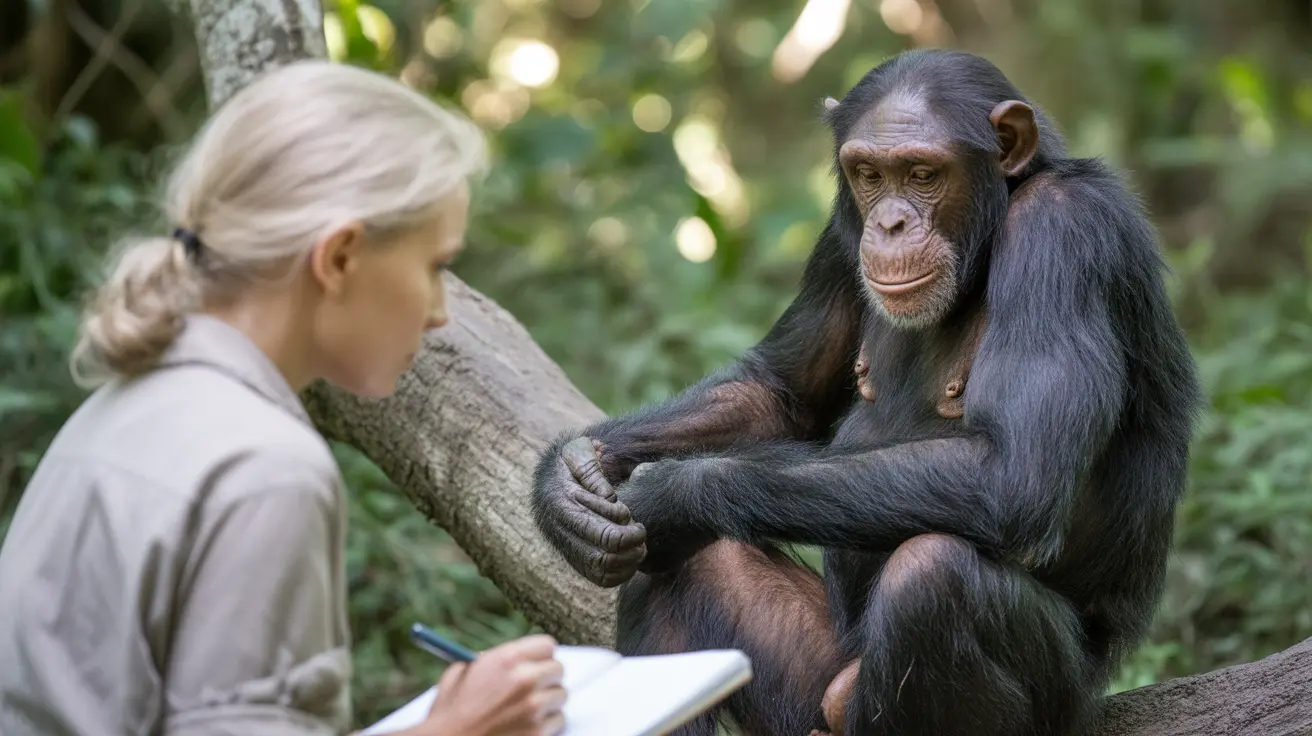Jane Goodall, the renowned primatologist and wildlife advocate whose groundbreaking chimpanzee research transformed our understanding of animal behavior, has passed away at age 91. Her lifetime of dedication to studying and protecting our closest animal relatives has left an indelible mark on wildlife conservation and animal rights advocacy.
Throughout her illustrious career, Goodall's work revolutionized our comprehension of primate behavior and challenged long-held scientific assumptions about the divide between humans and animals. Her observations in Tanzania's Gombe Stream National Park set new standards for wildlife research and inspired generations of conservationists.
Groundbreaking Discoveries in Chimpanzee Behavior
Goodall's meticulous research at Gombe Stream National Park revealed unprecedented insights into chimpanzee social behavior. Her patient observation techniques and immersive approach to field research established new methodologies that continue to influence wildlife studies today.
Understanding Tool Use and Intelligence
One of Goodall's most significant contributions was documenting chimpanzees using tools - a discovery that redefined what we knew about animal intelligence. These observations demonstrated that humans were not the only tool-makers in the animal kingdom, challenging prevailing scientific beliefs of the time.
The Jane Goodall Institute's Impact
The establishment of the Jane Goodall Institute marked a crucial transition from pure research to active conservation. The organization has pioneered community-led conservation efforts across Africa, recognizing that protecting wildlife requires supporting local communities and their development.
Roots and Shoots: Inspiring Future Generations
Through the Roots and Shoots youth program, Goodall's vision expanded to engage young people worldwide in environmental conservation. The program empowers youth to become active citizens in wildlife protection and environmental stewardship.
Conservation Legacy and Community Engagement
Goodall's approach to great ape protection emphasized the importance of working with local communities. Her methods demonstrated that successful wildlife conservation programs must balance animal protection with human needs and development.
Frequently Asked Questions
How did Jane Goodall's research change our understanding of chimpanzee behavior?
Goodall's research revealed that chimpanzees are capable of complex tool use and have rich emotional and social lives. Her work showed that these primates share many behaviors previously thought to be uniquely human, including tool-making and hunting.
What is the impact of the Jane Goodall Institute on conservation?
The Institute has pioneered community-based conservation approaches in Africa, combining wildlife protection with sustainable development initiatives. This model has become a standard for modern conservation efforts worldwide.
How does the Roots & Shoots program contribute to conservation?
The program engages young people in hands-on conservation projects and environmental education, creating a new generation of wildlife advocates and environmental stewards. It operates in over 100 countries, connecting youth to nature and conservation principles.
Looking Forward
Jane Goodall's legacy lives on through the countless researchers, conservationists, and wildlife advocates she inspired. Her work reminds us that understanding and protecting animals requires patience, dedication, and a recognition of their intrinsic worth and intelligence.
The principles she established - of careful observation, respect for animal intelligence, and community-based conservation - continue to guide wildlife protection efforts worldwide. As we reflect on her contributions, we're reminded that every individual has the power to make a difference in protecting our planet's precious wildlife.






